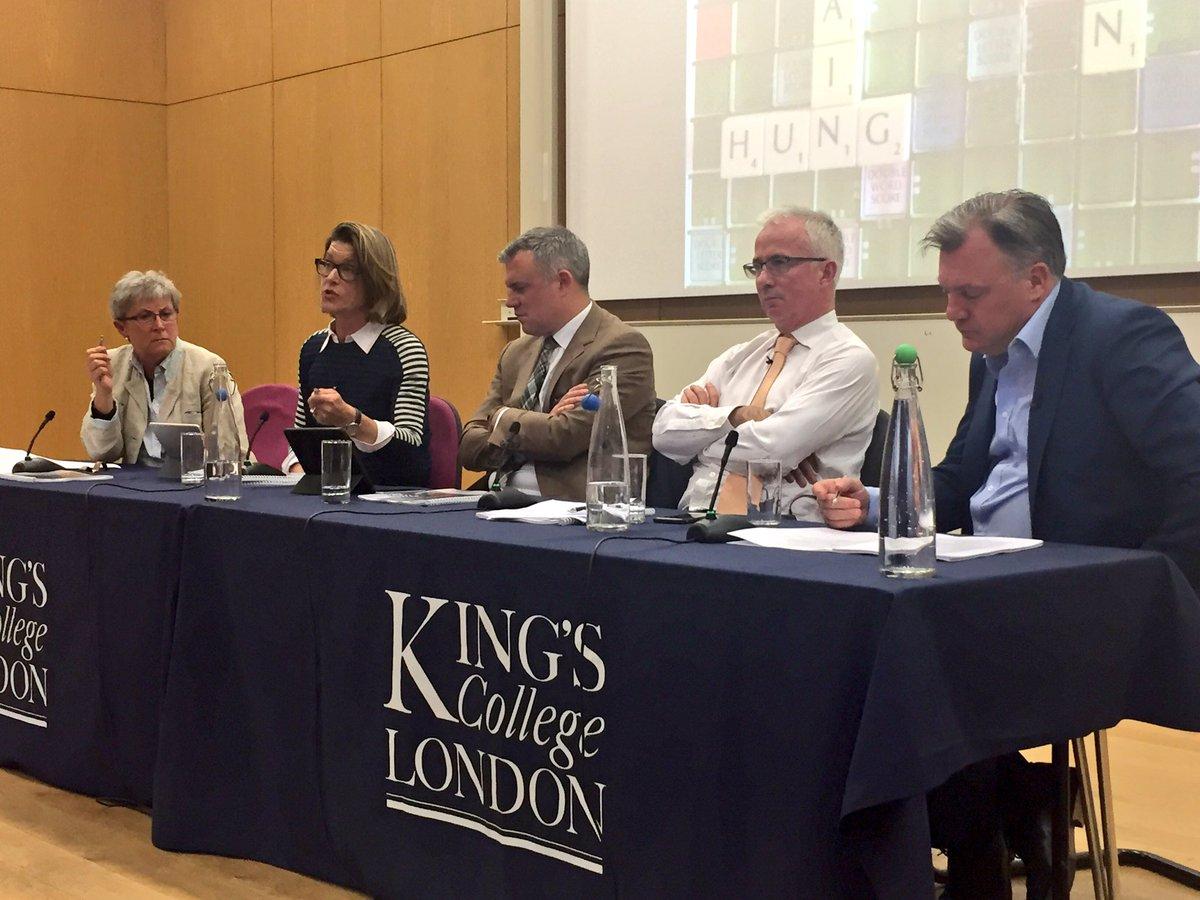Ed Balls predicts another election next year to resolve Brexit deadlock
The former shadow chancellor thinks the cross-party agreement proposed by the ‘highly respected’ Yvette Cooper ‘won’t appeal’ to either Theresa May or Jeremy Corbyn


To the Strand Group at King’s College, London, last night to hear Ed Balls present his work with Peter Sands on what businesses want from Brexit.
The paper finds that most companies want to stay in the single market. If they can’t have that, they want a free trade agreement with as little obstruction to trade as possible. They are worried that, far from escaping Brussels regulation, Brexit means more and duplicated regulation. And they want to keep access to EU labour, either highly skilled or low-skilled in agriculture and hospitality.

Balls said he thought three things could happen. One is that Theresa May could “muddle through”, despite her loss of credibility and the loss of the threat to walk away from the talks, which the DUP wouldn’t allow.
The second was a cross-party arrangement proposed by, among others, the “highly respected” Yvette Cooper. (Today it was backed by William Hague and Ruth Davidson.) But he thought this would be too much of admission of weakness by May, and that Jeremy Corbyn would be “extremely wary” of getting into such a discussion.
His assessment was that May moved from being an outsider to an insider during the election campaign, which was disastrous at a time when the anti-establishment mood was strong, and that Corbyn “won’t want to be half in and half out”. He said: “Anything that looks like a sharing of risk won’t appeal to either side.”
So he thought the third scenario was the most likely, which was that there would be a general election towards the end of the negotiation in an attempt to secure a clear mandate. Presumably this would be towards the end of next year.
Balls also compared the Brexit negotiation to a divorce, saying it would be fine unless the lawyers are brought in, in which case everything escalates and the children – “in this case probably jobs and growth” – lose out.
Gisela Stuart, the Labour Leaver who stood down as MP for Birmingham Edgbaston at the election, said there was a third option in divorce: “You both go off and marry someone else and you’re both infinitely happier than you were before. I did that with my first husband.” She said: “If only we realise that we have a golden opportunity” to get away from a dysfunctional EU that was holding us back.
Stephanie Flanders, the former BBC Economics Editor now at JP Morgan Asset Management, took a rather different view. She politely and briefly explained the complexity of Brexit. The civil servants drafting the Great Repeal Bill “will be committing policy” whenever they press “find and replace” as they try to convert EU law into UK law, she said. She gave the example of the Takeover Panel, the independent statutory body that oversees company takeovers, which has to decide whether a merger would have too great a share of the EU market.
And she said that the idea of “reverting to World Trade Organisation rules” was widely misunderstood. “It’s not a factory setting that you default to: everything has to be negotiated. It requires thought and time.”
Stuart thought it was alarmist to suggest that the EU would not be flexible: “They are about to lose their second largest contributor.” Balls agreed that the EU had a remarkable ability to agree that words meant what the Council decided they meant, citing the decision that all countries had met their obligations under the Stability and Growth Pact, and, longer ago, allowing the UK’s opt-outs from the Maastricht Treaty.
But he said “they don’t forgive party politics”, and that they resented May’s scare tactics early in the election campaign. “We have to persuade them that we want to leave in a way that helps the EU.”
The Strand Group, directed by Dr Jon Davis, is the seminar series on politics, economics and contemporary history at the Policy Institute, Kings College, London.



Join our commenting forum
Join thought-provoking conversations, follow other Independent readers and see their replies